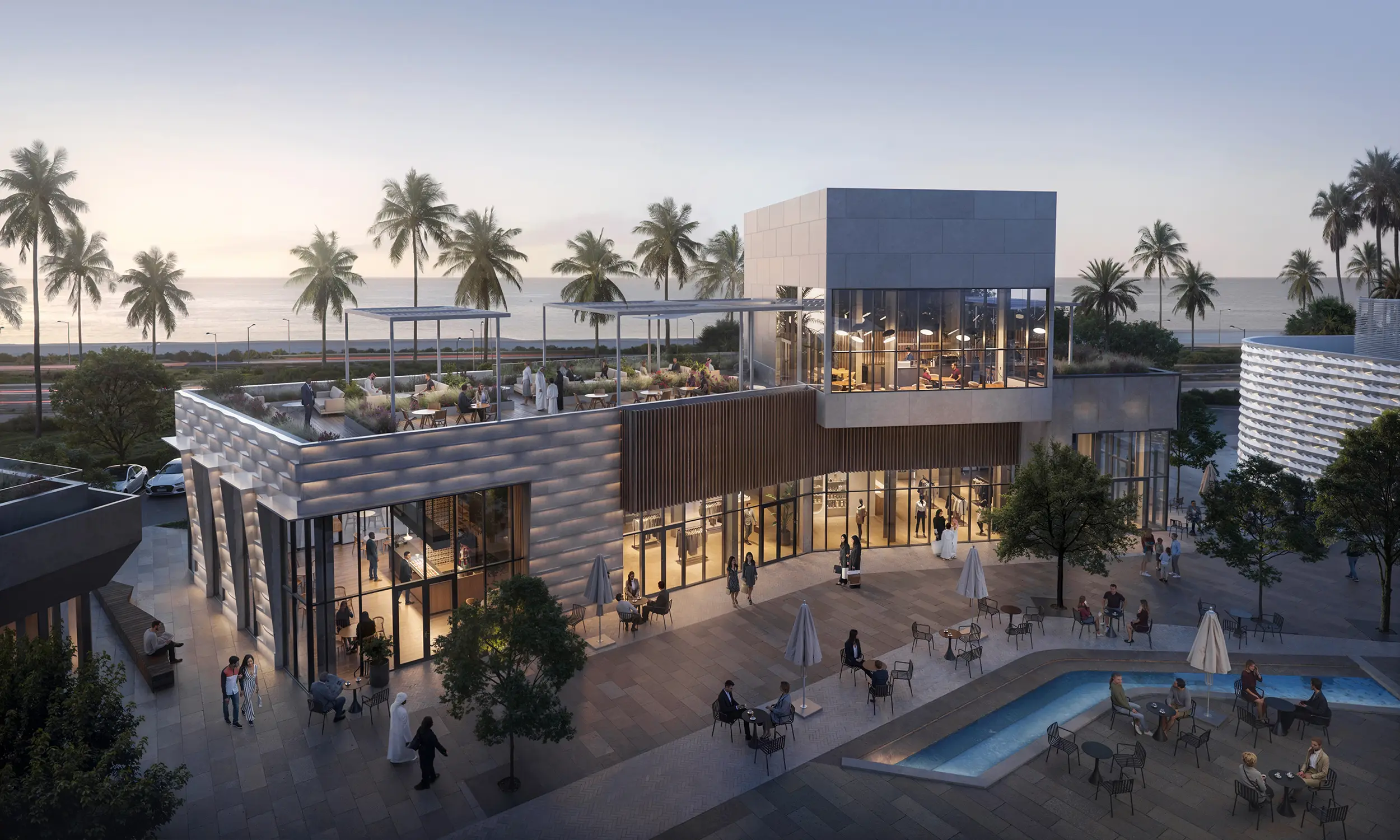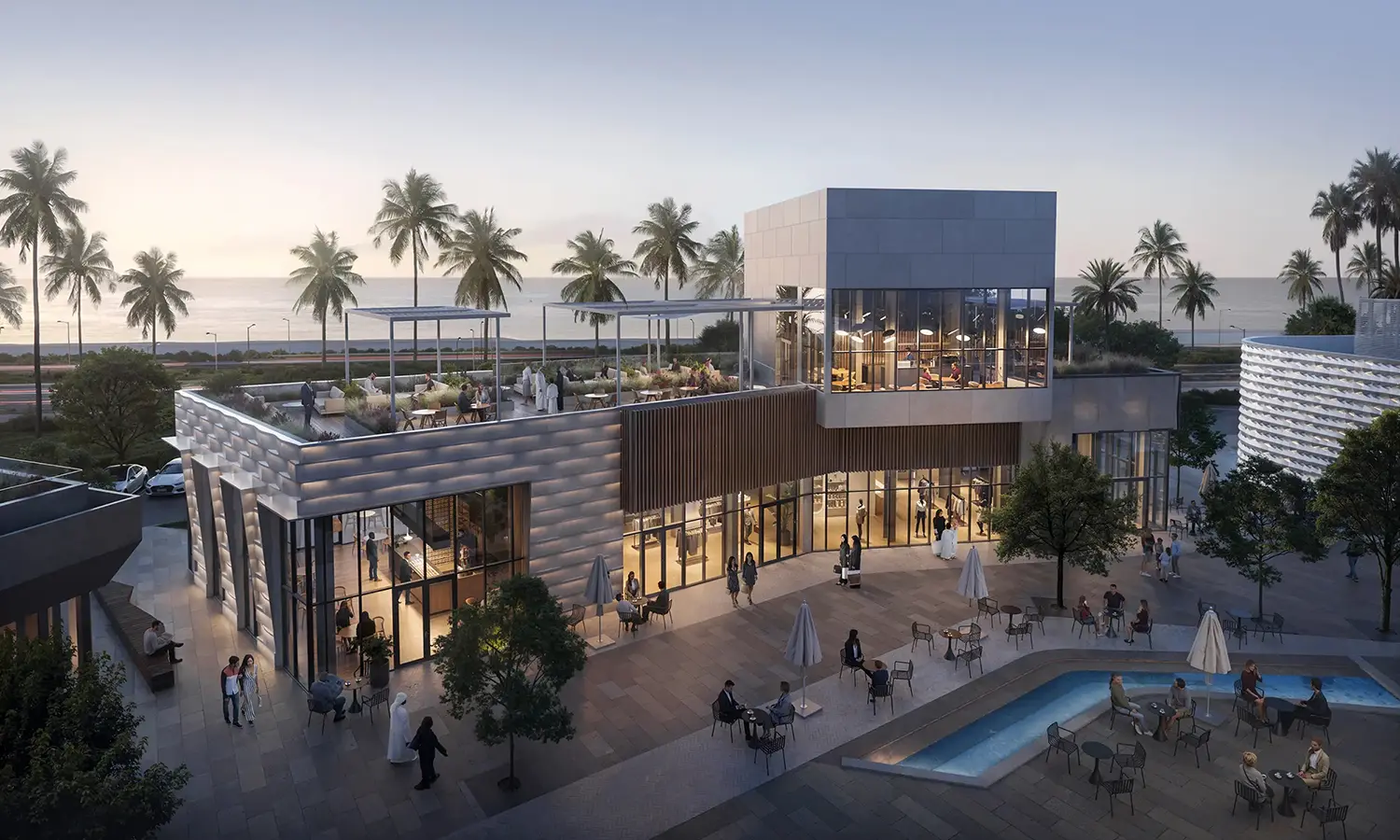The growing international presence in Dubai’s real estate market is raising the bar for marketing — from the quality of visual materials to the depth of adaptation for different investor profiles. To appeal to an investor from London, Riyadh, or Shanghai, a project must be “translated” into their language — visually, conceptually, and culturally.
How can that be achieved? Let’s take a closer look at what real estate marketing in Dubai can offer.
Key Aspects of Real Estate Marketing in Dubai
In 2024, Dubai’s real estate market demonstrated steady growth, and in 2025, experts expect further expansion. According to the UAE Central Bank, Dubai's real estate sales are trending upward, with transactions surging by 42.5% compared to 2024. In 2025 alone, over 76,000 new units are expected to be delivered, with total supply reaching 182,000 by 2026. This includes growth across the broader Middle East region.
This creates new challenges for marketing: how can a property stand out in a saturated market and effectively communicate its value to an international audience? Below are the essential components of a modern real estate marketing strategy in Dubai, including modern marketing tactics.

Visual Content as the Primary Sales Tool
In Dubai's dynamic real estate market, visual content has become a cornerstone of effective property marketing. High-quality visuals—such as 3D renderings, virtual tours, and 3D animation for real estate—are expected. These tools are especially critical for off-plan properties, which accounted for around 65% of all transactions in 2024. They help potential buyers, particularly international investors who can’t visit in person, clearly understand a project’s design, layout, materials, and surrounding infrastructure.
The growing demand for strong visual communication is closely tied to the changing profile of buyers. Millennials now lead activity in Dubai’s property market and expect a seamless digital experience, including immersive, interactive content. At the same time, Gen Z is beginning to shape future trends. This younger audience places high value on sustainability, smart-home features, and a sense of community—qualities that are far easier to convey through 3D visualizations than through traditional photos or 2D floor plans.
Data-Driven Marketing and Artificial Intelligence
AI tools are shifting the role of real estate agencies — from merely listing properties to managing data quality and relevance. In the context of property marketing in Dubai, advanced analytics and automation enable targeted audience engagement and more efficient sales funnels.
In 2025, Dubai’s Land Department (DLD) launched an AI-powered government platform to monitor property ads on major websites like Bayut, Dubizzle, and Property Finder. Integrated with the Trakheesi permit system and the Madmoun QR code verification, the platform has already analyzed over 279,000 listings—with nearly a third automatically flagged and corrected for discrepancies.
Social Media Optimization and Influencer Partnerships
In 2025, social media will remain one of the top real estate marketing channels in Dubai. Instagram and YouTube are the leading platforms where users research residential developments, investment opportunities, and urban infrastructure.
Collaborating with influencers — particularly those with audiences in India, China, the UK, and the CIS — proves highly effective. Visual content tailored to cultural context (reels, video tours, personal Stories) helps capture attention and build trust.
This is especially relevant for promoting hotels, resorts, and malls: property types popular with international buyers.
This approach is also supported at the city level. In 2025, Dubai launched the Beautiful Destinations Academy, Powered by Dubai, a government-backed influencer training program supported by the Department of Economy and Tourism (DET). It offers a 3-month curriculum, accommodations, and access to key city locations — including real estate sites. Participants learn professional content-creation techniques aimed at international buyers and investors.
Developers and architectural firms should also leverage direct interaction formats: live broadcasts from sites, construction progress updates, and AMA sessions with project reps. These formats are especially effective for off-plan sales and long-distance client engagement.
Emphasizing Smart and Sustainable Living
Buyers in Dubai are increasingly prioritizing smart and eco-conscious features alongside location and size. Projects with energy-efficient systems, smart climate control, lighting, and security are becoming the standard, especially in new districts and mixed-use communities.
According to Sobha Realty, demand for smart homes continues to grow, with the global “smart living” market valued at $174 billion. City-wide initiatives are reinforcing this trend: Home First updated building codes to promote flexible and sustainable solutions, while the Sheikh Zayed Housing Program supports affordable energy-efficient housing.
IoT and AI integration into urban infrastructure further elevate the technological and environmental standards — turning these features from competitive advantages into baseline expectations. For marketers, this means clear and detailed communication about installed systems, their benefits, and how they improve everyday life.

Targeting High-Yield Investment Opportunities
Dubai remains a top destination for real estate investment. In 2025, rental yields average 6% annually, reaching 7% or more in districts like Jumeirah Village Circle.
With over 18.7 million tourists in 2024, short-term rentals (holiday homes) show high liquidity and yield growth, attracting both private investors and funds.
Marketing must adapt accordingly: vague project descriptions no longer suffice. Investors expect structured presentations with clear entry costs, management expenses, projected yields, occupancy scenarios, and payback timelines — broken down by district and rental type.
Technical presentation quality is also critical: yield calculators, scenario simulators, localized content, reference links to market data, and visual stats by area are now part of the essential toolkit.
Building a Strong Personal Brand
With rising inventory and a dense network of agents, personal branding has become a key differentiator. According to LinkedIn, real estate professionals who consistently share expert content perform better.
Market analysis posts, project case studies, client testimonials, participation in panels, and commentary in industry media all contribute to positioning someone as a trusted expert — not just a salesperson. And that drives a deeper level of engagement in the luxury market and beyond — including skyscrapers and mixed-use verticals.
How CYLIND Can Elevate Your Dubai Real Estate Marketing
CYLIND collaborates with developers, architectural firms, and real estate agencies around the globe — including the Middle East region, Europe, and Asia. We understand the behavioral and cultural expectations of different audiences — from institutional investors to individual buyers — and tailor visual solutions accordingly.
Photorealistic Imagery
Photorealistic renders are crucial for off-plan or early-stage developments, helping clients make informed decisions without visiting the site. 3D rendering for property development is ideal for launching marketing campaigns for residential and commercial complexes, aparthotels, hotels, resorts, malls, and mixed-use projects.
To be truly effective, such renders must go beyond technical accuracy; they must evoke emotion. That’s why our focus is on detail: lighting, materials, environment, angles — all selected to convey the atmosphere as close to reality as possible. It’s not just information; it’s visual desire.

Virtual Tours
360 Virtual Tour Services are key for projects requiring engagement before personal contact. Built on 360° panoramas, these tours let users explore in real time — including aerial views and room-to-room walkthroughs. They are ideal for digital marketing, email funnels, and international deals where physical visits aren’t possible.
Premium Visual Content
In Dubai’s luxury property segment, visualization must match the product’s quality—both technically and narratively. We create full visual narratives, including a sequential walkthrough animation that simulates the user journey and interactive interfaces. These are used in private pitches, investment decks, and digital exhibitions where prestige, depth, and cultural alignment are key.
Virtual Staging
A major challenge in marketing empty or unfinished units is the lack of visual context. Virtual staging services address this challenge by helping buyers understand proportions, layout functionality, and potential usage—especially for white-box units or spaces under renovation.
Virtual staging is ideal for:
- Newly finished or renovated residential units
- Rental apartments requiring flexible visuals
- Commercial spaces such as offices, malls, and showrooms
- Investment white-box units without finishes
CYLIND blends visualization with architectural thinking — we don’t just "fill" a room, we shape how the space is perceived as a product. Through our experience in 3D rendering for marketing, we focus on spatial logic, proportion, and narrative. Our team’s architectural background allows us to communicate value through zoning, composition, and scale.
All images © CYLIND

